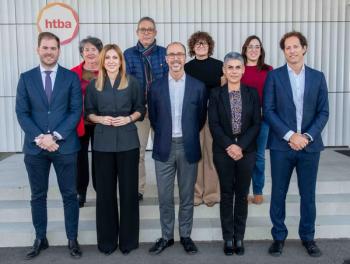
- Nutritional Outlook Vol. 17 No. 8
- Volume 17
- Issue 8
Supplement-Related Liver Injuries Are Up, But No Cause for Blanket Warning, Says CRN
Supplement-related liver injuries rose from 7% to 20% between 2004-2013.
The number of liver injuries related to herbal and dietary supplements is up, according to new data from the Drug-Induced Liver Injury Network (DILIN) published in the latest issue of
DILIN reports that 709 liver injury cases (85%) recorded at eight U.S. referral centers in 2004–2013 were due to medication. There were also 130 cases (15.5%) caused by herbal and dietary supplements-marking an increase from 7% to 20%. Specifically, 85 cases (65% of the supplement total) were caused by non-bodybuilding supplements, and 45 cases (35% of the supplement total) were caused by bodybuilding supplements. The study enrolled 839 patients.
Hepatotoxicity cases were “evaluated by expert opinion.” Criteria included cases of jaundice or coagulopathy (clotting) and elevations in alanine or asparate aminotransferase or alkaline phosphatase levels. Liver injuries included liver-related death or liver transplantation.
Notably, DILIN reports that there was a “significantly higher proportion of severe cases” within the supplements group, compared to the conventional medication group.
“Contrary to widespread belief, this study demonstrates that [herbal and dietary supplement] products are not always safe,” the authors write. “Indeed, our data suggest that, relative to conventional medication-induced hepatotoxicity, liver injury from [herbal and dietary supplements not only occurs, but also may be increasing in frequency over time in the populations surrounding the DILIN centers and, probably, in the United States as a whole.”
The researchers did note that overall supplement usage in the United States has concurrently gone up, according to NHANES data. Also, they warn that one challenge in assessing potential hepatotoxicity related to supplements is that many supplement products contain multiple ingredients, which may make it difficult to analyze toxic potential. Potential interactions between medication and supplements may further fuzz the picture. Finally, adulterated and contaminated supplements may be responsible for damages, as well.
Given these factors, the Council for Responsible Nutrition (CRN; Washington, DC) says that while this study is well-designed and that its revelations should be cause for supplement manufacturers to continue adhering to strict adverse-event reporting (AER) protocols, as required by law, the report “does not warrant any blanket warnings in the area of supplements or supplement regulations, except to remind consumers to talk with their doctor about the supplements they take.”
CRN points out that “dietary supplement regulation includes a serious adverse event reporting system that would help identify patterns were they to exist.”
“Questions also remain about whether the serious results were idiosyncratic, related to adulterated products (which are illegal), associated with taking the product off-label, or some other confounding factor," CRN states. The association further urges FDA to remove spiked supplements from the marketplace.
Established in 2003, DILIN is supported by the National Institute of Diabetes and Digestive and Kidney Diseases and was founded to identify and characterize cases of liver injuries associated with medications and supplements.
Editor-in-Chief
Nutritional Outlook magazine jennifer.grebow@ubm.com
Photo © iStockphoto.com/spanteldotru
Articles in this issue
about 11 years ago
Regulatory Concerns Are Shifting the Focus of Digestive Healthabout 11 years ago
Probiotics for the Skinabout 11 years ago
Prebiotic Ingredients: Nondigestible Oligosaccharidesabout 11 years ago
Natural and Healthy Pet Food Ingredientsabout 11 years ago
Brain Health Dietary Supplement Ingredient Research Updateabout 11 years ago
Dietary Supplements for Postmenopausal Osteoporosisabout 11 years ago
Can Dietary Supplements Really Help Control Allergies?about 11 years ago
Is There a Risk in Premix Overages?about 11 years ago
Ingredient Spotlight: Prickly PearNewsletter
From ingredient science to consumer trends, get the intel you need to stay competitive in the nutrition space—subscribe now to Nutritional Outlook.





